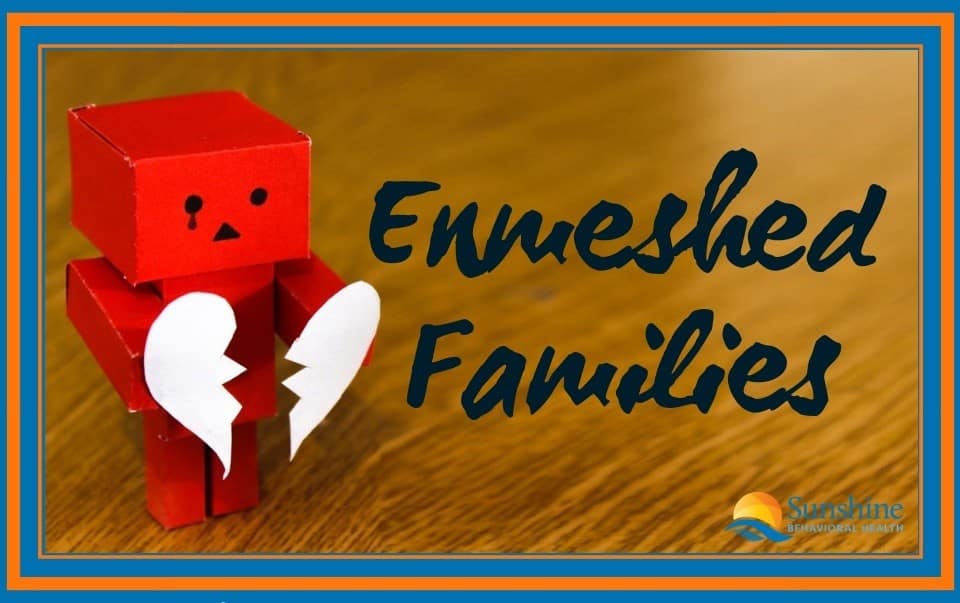
Enmeshed Families
Enmeshed families have a good many problems, not the least of which is a great number of addiction problems. Often, such families have an addicted person around which the family dynamics revolve. For example, if one parent is addicted, the other may take care of the addict and buffer the interactions the children have with the impaired parent. This creates dysfunctional behaviors and boundaries. The more well parent and the children may be a group with the other parent an outsider of the family’s daily life. This is opposed to a more functional family in which the 2 parents are a unit and the children are a separate one cared for by both parents. In enmeshed families, boundaries are not defined the same as in functional ones. In functional families there is a healthy respect for others’ privacy and rights, for example. This is demonstrated by giving others ‘space’, not prying into the appropriately private matters of others and not attempting to control others. Enmeshed family systems have no such standard of mutual respect. It is as if the rights to privacy and independence are trampled. Addiction can easily take hold in such families because getting intoxicated is a way to ‘leave’ the family without actually leaving. When the family resists a member’s independence, getting high is at least a temporary solution. The substance user gets a break from the enmeshment and can feel independent when he/she uses. The system does not change, however, and true independence, along with all the skills needed to be independent are not learned. Substance use and other dysfunctional behaviors become methods of avoiding the family system’s ‘mushy’ boundaries where individuals are part of the group rather than individuals. Recovery can be difficult for people who are in enmeshed families. It is not that family members necessarily want the addict not to recover, but that they resist and fear any dramatic changes. Most of the sabotaging behaviors of family members seem to be unconscious initially. Education about enmeshment and sabotage, the fear of change in the family and how this works out in their particular situation is extremely helpful. When made aware of these issues, family members can choose their behaviors which include separating to more appropriate respectfulness of the boundaries of others. 12 Step work and therapy can be very beneficial to addicts who are dealing with enmeshed family issues. Taking time to step back and examine how an enmeshed family has impacted one’s life can be an important building stone of a good and sustainable recovery.A Message From Our CEO
Medical disclaimer:
Sunshine Behavioral Health strives to help people who are facing substance abuse, addiction, mental health disorders, or a combination of these conditions. It does this by providing compassionate care and evidence-based content that addresses health, treatment, and recovery.
Licensed medical professionals review material we publish on our site. The material is not a substitute for qualified medical diagnoses, treatment, or advice. It should not be used to replace the suggestions of your personal physician or other health care professionals.





